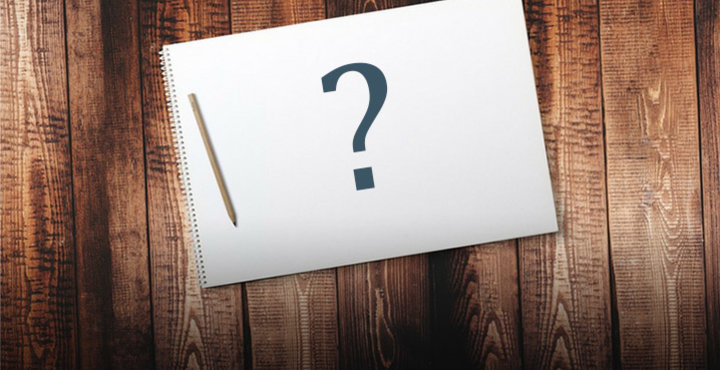Part 1 in Our Series on the Grammar of Swearing
Written by Taylor Dennis
Potty-mouthed grammar nerds of the world, unite.
I was in a fight with a fellow introvert the other day. (It's rare, but it does happen.) Anyway, this companion of mine happens to take his grammar pedantry pretty seriously, so I'm always on my grammatical guard around him lest he correct me for an accidental slip up.
Because we were fighting over the use of the serial comma (what else?), things got pretty heated between us. As two young language buffs, we both tend to take advantage of all the words available in a fight, even those that might not be so acceptable in what some call "polite company." We've both been known to use what can only be described as inventive curses in the past—especially when discussing controversial matters of punctuation.
I was just about to fly into a cuss-filled rage at him when it happened. As the first fff- sound slipped from my lips, I found myself stopping to ponder: Is what I am about to say grammatically correct?
That, dear reader, is the story of how this exploration of the grammar of swearing began. I invite you to join me now and over the next month as I explore the history, nature, and future of swearing in both writing and speech.
We'll start where one should always start: at the beginning, of course. Today we'll look at the origins and etymology of your favorite curse words, and we'll keep the history lesson going next week by examining the role swearing has historically played in written work. After that, the real fun will begin, when we examine how swear words fit linguistically into the English language. To finish, I'll teach you the best way to use swearing in your own writing.
Curse like a Sailor, Study like a Scholar
Are you ready for your most risqué English lesson ever?
I promise not to curse at you or offend, but I will be introducing the following seven words using—gasp!—their actual spelling. No dashes, stars, or hashtags will be included to shield your delicate eyes, but considering it's all in the name of learning, it's okay! (Fun fact for you: Did you know that the combination of various symbols to represent an obscenity—like this: %@#$^!—is called a grawlix?)
The main definitions provided for each word have been taken from the Oxford Dictionary of English.
1. Shit
Origin: Old English scitte ("diorrhoea"), of Germanic origin; related to Dutch schijten, German scheissen (verb).
The Dutch and German words from whence shit came share the same meaning as the English word; that is, they all essentially mean "poop" or "to poop." They don't mean "to defecate," as that word is a bit too classy and non-vulgar to really reflect the meaning of shit. Some more interesting history for you: the words from which shit originates come from even older words meaning "to part with, separate, or cut off." (Don't think about that one too much.) Even more interesting is the fact that the word shit actually used to be neutral, with no vulgar connotations.
Of course, there are many other ways to use the word shit as an expletive. Here are some examples of contexts in which the word can be used:
- Oh no—I stepped in dog shit.
- He's behaving like a little shit.
- Don't you dare give me that shit.
- This is a really shitty movie.
- Don't touch my shit!
2. Piss
Origin: Middle English, from Old French pisser, probably of imitative origin.
In keeping with our theme of bodily waste, we have piss, a relatively mild swear word, but definitely not something you'd like your grandmother to hear you say. The origin story for this one is pretty boring, but here's another little tidbit for you: the Old French pisser seems to refer not to urine itself, but to that which dispels the urine. It essentially means "one who pisses" or "that which pisses," meaning it can refer to either a person or a certain male appendage that I could certainly come up with some vulgar words for. As with shit, there are many creative ways to use piss as a swear word.
- I need to take a piss.
- That cat just pissed all over the carpet.
- Oh, piss off!
- I'm so pissed that you just ate my last French fry.
3. Ass
Origin: Variant of arse. Old English ærs, of Germanic origin; related to Dutch aars and German arsch.
Depending on where you live, ass or arse may be the more common variant of this word. While this word doesn't refer to excretion itself, it does of course refer to the body part responsible for that particularly unpleasant (but very necessary) function, and thus is the butt (pun intended) of many jokes and insults.
A donkey is also known as an ass after its Latin subgenus name, Asinus, and ass is often used as an insult essentially meaning "a stupid or foolish person." This is completely separate from its bum-related meaning. It should be noted that, while it is not at all insulting to call a donkey an ass, it would be quite rude to tell a donkey that it has a fat ass.
- He fell right on his ass.
- Don't be such an ass.
- That asshole called me ugly!
4. Hell
Origin: Old English hel, hell, of Germanic origin; related to Dutch hel and German Hölle, from an Indo-European root meaning "to cover or hide."
Most swear words have to do with three things: bodily functions, God, or sex. We covered the bodily functions with the first two, and now we're onto blasphemy. It's interesting to think of how the meaning of hell has evolved over time. Though the details are highly debated by theologians and internet trolls alike, the basic meaning of Hell in the Christian faith is a place or state of eternal suffering and separation from God. As a swear word, however, hell has many more meanings. For some reason, it's a relatively mild expletive, so you're likely to hear it crop up fairly often.
- Who in the hell do you think you are?
- Go to Hell!
- What the hell is going on here?
5. Damn
Origin: Middle English, from Old French dam(p)ner, from Latin dam(p)nare "to inflict loss on," from damnum "loss, damage."
If you're headed to Hell in a handbasket, how do you get there? And what are you once you're there? You're damned, of course. You can understand why damning someone to Hell—in other words, wishing them to suffer great pain and agony for the rest of eternity—is a pretty insulting thing to say. However, much like hell, damn is not a very strong or harsh swear word compared to others. Isn't English weird?
- Oh, damn it! Damn it to Hell!
- Damn, I forgot my keys.
- Oh, damn it, I'm late again.
6. Bitch
Origin: Old English bicce, of Germanic origin.
The Old English bicce comes from even older root words that all mean the same thing: a female dog. The word bitch still does mean "female dog" and is used in its literal sense in many different animal-related contexts. However, it has also evolved as an insulting term used to refer to an unpleasant woman. Bitch used to be one of the most insulting things to call a woman—consider, after all, the implications of saying someone is behaving like "a bitch in heat." Not only are you reducing the person to dog status, but you are also commenting on the person's reproductive cycle. This certainly did not fly in the more conservative societies of days past.
Today, however, bitch has a wide variety of meanings, some of which actually have positive connotations.
- She was being so rude to me. She's such a bitch.
- Quit your bitching and get your work done.
- Bad bitches like me are hard to come by.
- Bitches get stuff done!
7. Fuck
Origin: Early 16th century, of Germanic origin (compare with Swedish dialect focka and Dutch dialect fokkelen); possibly from an Indo-European root meaning "strike," shared by Latin pungus, meaning "fist."
This is the big one. Well, one of the big ones. The other big ones were a bit too big for us to put in print. In modern speech and writing, the word fuck is almost as offensive as you can get. Of course, that doesn't stop most people from using it creatively on a regular basis, but it does keep this word contained to HBO dramas about medieval warfare and albums labeled "Explicit." The word fuck can be used in a number of colorful ways, but its definition comes down to the act of sexual intercourse.
Isn't it interesting that in today's world, it's more offensive to refer to copulation in a vulgar way than it is to wish eternal damnation on someone? I personally think our priorities are a bit out of whack on this one, but alas, I don't make the rules.
- What the fuck are you doing?
- Oh, fuck! I stubbed my toe!
- I'm so fucking tired.
- That is fucked up.
Conclusion
I hope you feel like as much of a rebel reading these swear words as I did while writing them. (Can you believe I got paid to do this? I love my job.) We're scoundrels, all of us! Don't forget to join the fun next week when we scooch forward in time a bit to look at expletives and obscenity laws. It's going to be effin' awesome!
Image source: Gabor Monori/Unsplash.com
Perfect Your Writing with High-Quality Proofreading
Try Our Personal Proofreading Service, or Get a Free Sample
About the Author
Taylor Dennis is a writer and editor based out of Toronto, ON. She's obsessed with dogs, food, serial commas, and the written word, pretty much exactly in that order. You can find more of her work at taylordenniswrites.com, where she publishes a blog about life, health, and all the rest.








